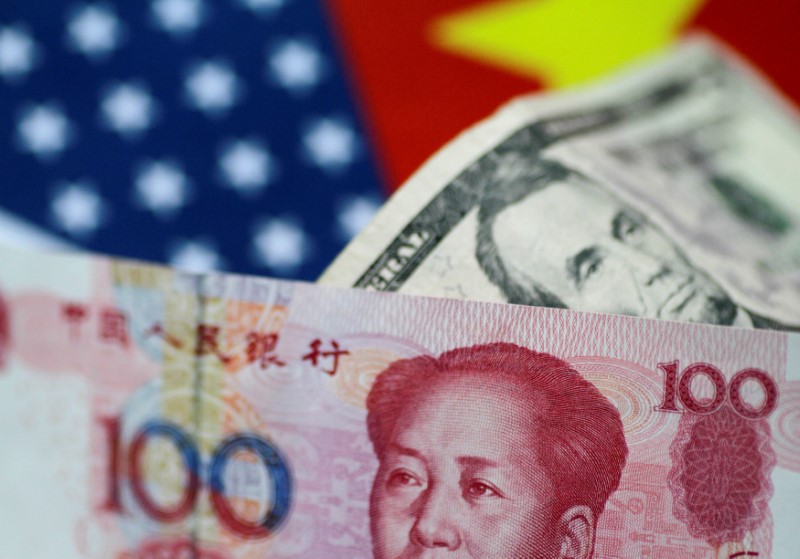Investing.com -- Most Asian currencies retreated on Tuesday as disappointing Chinese economic data posited a weak outlook for the region’s largest economy, while hawkish comments from Federal Reserve officials also brewed uncertainty over the path of U.S. interest rates.
China’s yuan fell 0.1% and traded near a two-month low after data showed industrial production and retail sales grew less than expected in April. The readings, which come on the heels of several weak economic indicators earlier this month, point to a staggered recovery in Asia’s largest economy, even after the country relaxed most anti-COVID measures earlier this year.
The weak data also saw markets positioning for a potential 25 basis point rate cut by the People’s Bank next month, which is likely to fuel further weakness in the yuan. The currency was trading just shy of the psychologically important 7 level against the dollar.
Weakness in China spilled over into other Asian currency markets, particularly those with a high trade exposure to the country. The South Korean won fell 0.1%, while the Thai baht led losses across Southeast Asia with a 0.3% dip, as traders also locked in recent profits in the currency.
The Australian dollar fell 0.1%, also coming under pressure from a sharp drop in consumer sentiment in the face of rising interest rates and worsening economic conditions.
Sentiment towards risk-driven assets was also rattled by a slew of Federal Reserve officials warning that the bank could still act further to bring down stubborn inflation. Four regional Fed presidents said in separate addresses that interest rates were likely to stay higher for longer, with some officials also raising the possibility of more interest rate hikes.
The dollar index and dollar index futures steadied near a one-month high on Tuesday, after logging small losses in the prior session. But the greenback still strengthened against the Japanese yen by about 0.1%.
The dollar moved little this week as markets hunkered down in anticipation of more U.S. economic signals this week, starting with industrial production and retail sales due later in the day.
Several more Fed speakers are also lined up for the week, most notably Chair Jerome Powell on Friday.
Fed Fund futures prices show that markets are still positioning for a pause in the Fed’s rate hike cycle in June. But traders are also factoring in a small chance of a 25 basis point hike.
The prospect of U.S. rates remaining higher for longer bodes poorly for Asian currencies, as the gap between risky and low-risk yields narrows.
